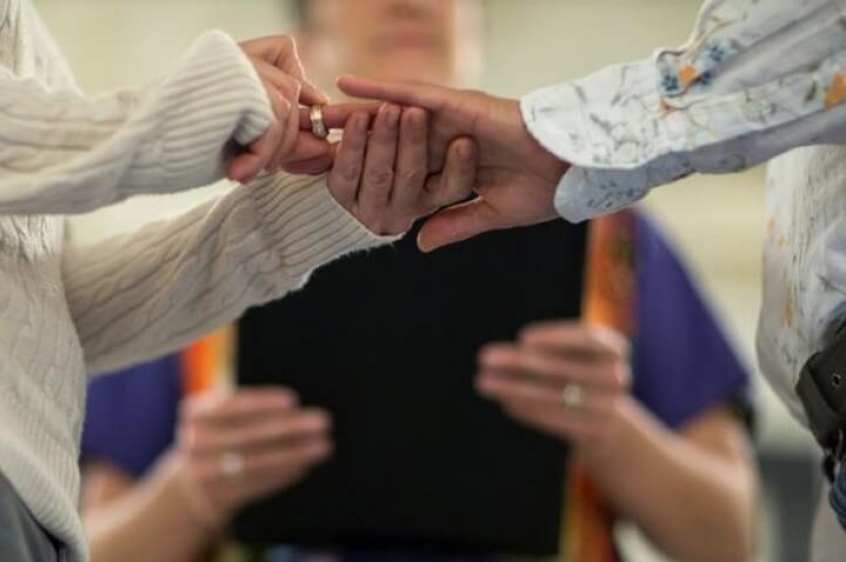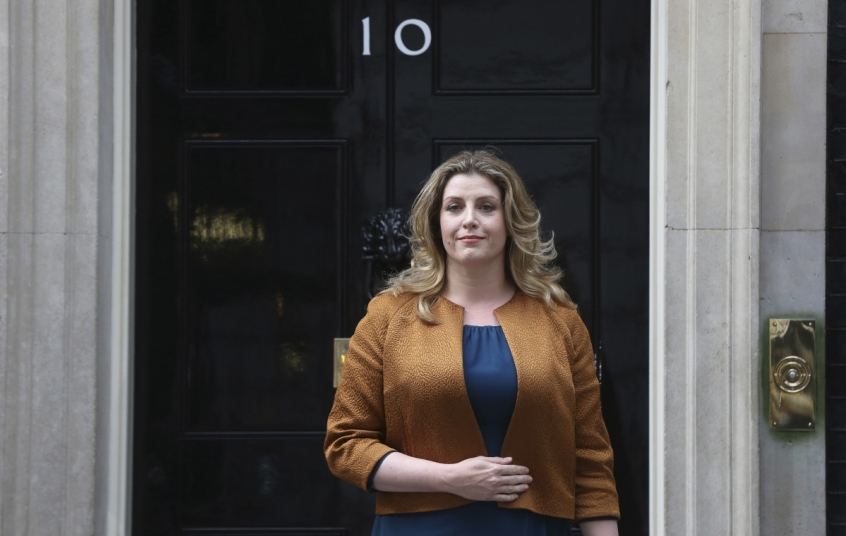The Church of England's stance on sexuality would be thrown into disarray if the government pushes ahead with scrapping civil partnerships.
Officials within the CofE are urging ministers against the move which came as figures suggest this form of union has been made almost obsolete by the introduction of same-sex marriage.

Civil partnerships legislation was introduced in 2004 to give same-sex couples legal recognition of their relationship without changing the definition of marriage. But the Marriage (Same-Sex couples) Act in 2013 allowed gay couples to marry, or convert their civil partnership into a marriage.
This meant that in 2016 there were just 890 civil partnerships registered in England and Wales, down from 6,305 from 2007 to 2013.
'If demand for civil partnerships remains low and this becomes a stable position, this might suggest that same-sex couples no longer see this as a relevant way of recognising their relationships, and that Government should consider abolishing or phasing out civil partnerships entirely,' ministers in the equalities office said in a policy paper released last week.
'If significant demand for civil partnerships remains over time, this may indicate that the institution still has relevance,' it added. The government said it wanted more time to examine the evidence before coming to a decision.
The Church of England does not allow gay priests to marry. However it does permit clergy to enter into civil partnerships, as long as they promise to remain sexually celibate.
If ministers pressed ahead with abolishing civil partnerships – including existing civil partnerships – this stance would become untenable and could force clergy in civil partnerships to convert their relationship to a marriage.
Rev Dr Malcolm Brown, director of mission and public affairs for the Church of England urged the government against the move and called for civil partnerships to remain in place.
'We believe that Civil Partnerships still have a place, including for some Christian LGBTI couples who see them as a way of gaining legal recognition of their relationship,' he said.
'Even if the Government's current information-gathering exercise reveals only a small number are taking up Civil Partnerships, we hope it will remain an option.'
The government's document came as the Supreme Court considered whether to open up civil partnerships to heterosexual couples this week.

Rebecca Steinfeld, 37, and Charles Keidan, 41, from Hammersmith in west London, say marriage is 'historically heteronormative and patriarchal' and want to enter into a legal arrangement. However they are banned because the Civil Partnership Act 2004 allows only same-sex couples to participate.
James Eadie QC, representing the equalities minister Penny Mordaunt, told the court the Government wants to wait until September next year before it considers what to do so as to allow four whole years of data to be gathered following the introduction of same-sex marriage.
He said the delay was 'justified' and told the Supreme Court: 'These are highly sensitive social (and indeed political) issues in which the Government and Parliament are currently, actively and seriously engaged on a defined timescale and process.
'The process has taken some time – a fact that is in part due to an understandable and legitimate concern to gauge the reaction over a period of time to the introduction of the Marriage Act 2013.'
Karon Monaghan QC, representing Ms Steinfeld and Mr Keidan, argued the delay was unacceptable as they were "instantly" discriminated against from the moment the Marriage Act came into force.
A judgement is not expected for several weeks but if civil partnerships were opened up to heterosexual couples, this could allow the church to maintain its current stance.
The gay rights charity Stonewall also strongly opposed the abolition of civil partnerships.
'While many have converted their civil partnership to a marriage, many thousands of same-sex couples haven't – and don't want to,' said Paul Twocock, the organisation's campaign director. 'They want to maintain the integrity of the day they made their commitment to each other in a civil partnership.
'It's not right for any government to take that away. Abolition would imply that civil partnerships are now less valued than a marriage and somehow irrelevant. Nothing could be further from the truth for those couples already in them.'













